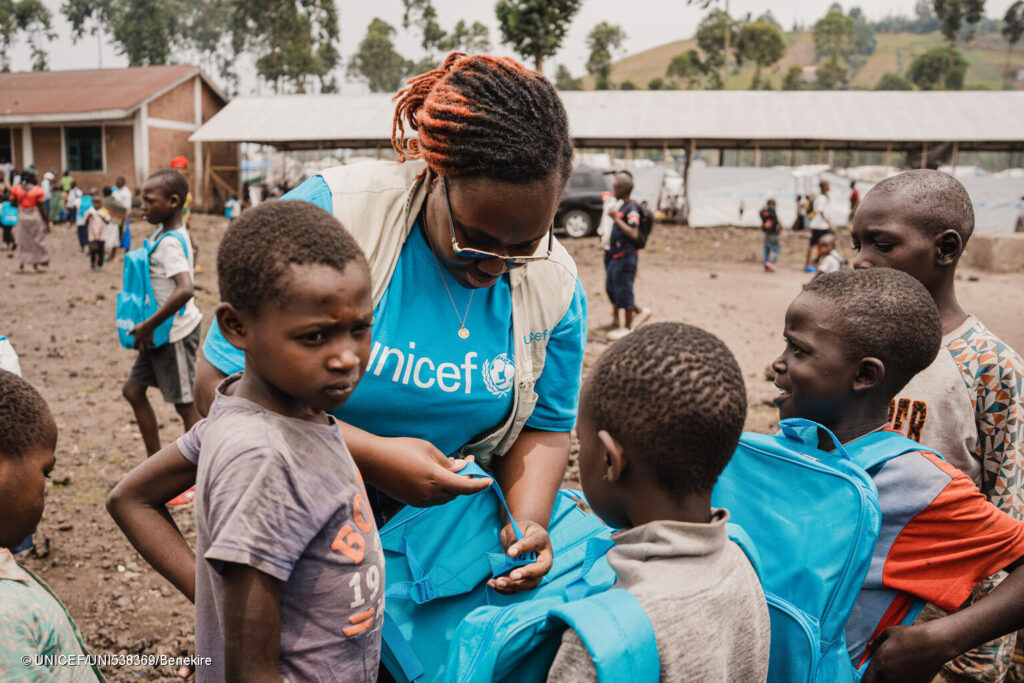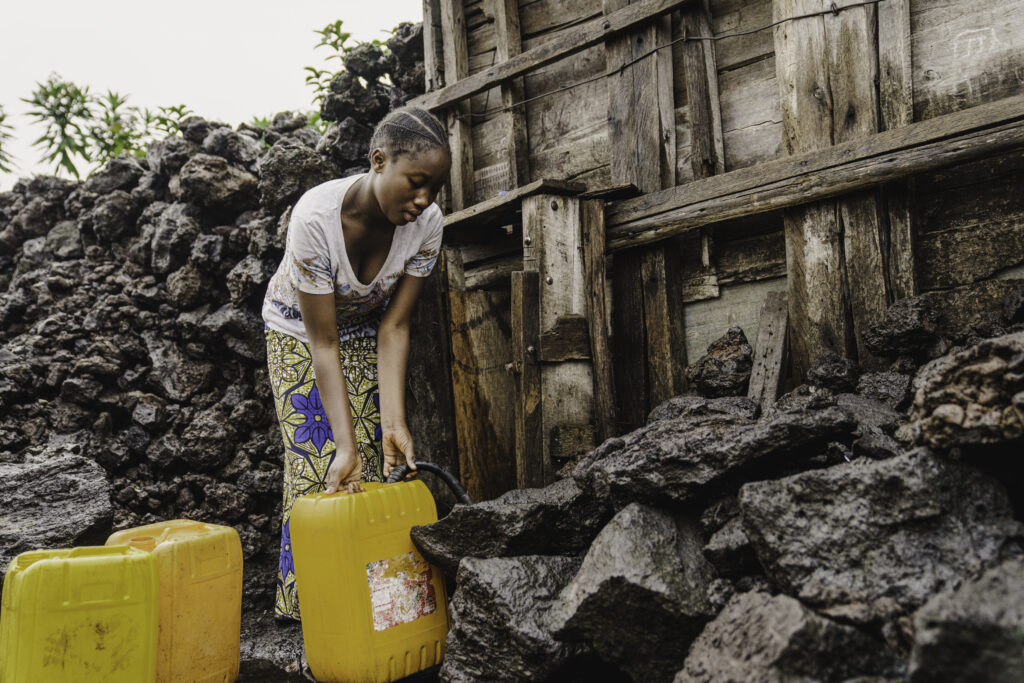Despite the urgent need for humanitarian aid, the lack of visibility and media coverage makes it hard to attract the necessary humanitarian support to DR Congo. In response, the Grundfos Foundation is making a DKK 1 million donation to UNICEF’s efforts in the country. And once again the Grundfos Foundation demonstrates that its contributions are driven by actual human need—not by media coverage or international attention.
“Humanitarian emergency responses should be guided by need – not by publicity or media attention. It is crucial that so-called forgotten disasters also receive the support they require. That is why we have structured our emergency relief partnership in a way that allows UNICEF to allocate our financial support where it is most needed,” says Kim Nøhr Skibsted, Executive Director of the Grundfos Foundation.

Goma, North Kivu province, DR Congo: UNICEF has facilitated the construction and rehabilitation of 17 temporary learning spaces and distributed 3,000 school kits to the Bulengo primary school, which caters for more than 5,400 displaced pupils. Photo: Jospin Benekire
The Grundfos Foundation’s support is essential for UNICEF to maintain its humanitarian efforts for children and families in DR Congo. In the city of Goma, UNICEF is providing clean water supplies to over 700,000 people a day, including 364,000 children, after damage incurred due to the uptick in fighting. Access to clean water is especially vital for children, who are far more likely to die from waterborne diseases than from direct violence during war and conflict.
“At UNICEF, we are grateful that the Grundfos Foundation is stepping up to help children and families who are currently caught in the middle of a disaster that is outside the global spotlight. With this support, UNICEF is giving children in DR Congo not only a better chance to survive, but also hope for a brighter future,” says Susanne Dahl, Executive Director, UNICEF Denmark.

Since the recent escalation of violence in Goma, access to water has become a major challenge, forcing many families to draw water either from the lake or from often unsanitary reservoirs, increasing the risk of cholera and other waterborne diseases. To address this situation, UNICEF and its partners have installed more than 30 water chlorination points in Goma to protect the population. Photo: Jospin Benekire
In DR Congo, UNICEF is currently focusing on three key areas:
- Access to clean drinking water and sanitation: UNICEF is establishing and restoring water supply systems in conflict-affected areas. This reduces the risk of waterborne diseases and improves survival chances for children and their families.
- Emergency health and nutrition aid: UNICEF is providing life-saving assistance to children suffering from acute malnutrition, as well as vaccines and medicine to curb the spread of diseases.
- Protection of children in conflict zones: UNICEF is actively working to protect children from violence, including sexual abuse, which is unfortunately widespread in some regions of DR Congo. Safe shelters and psychosocial support are crucial in helping affected children regain a sense of security and childhood.
More information about UNICEF’s work in DR Congo is available here.

